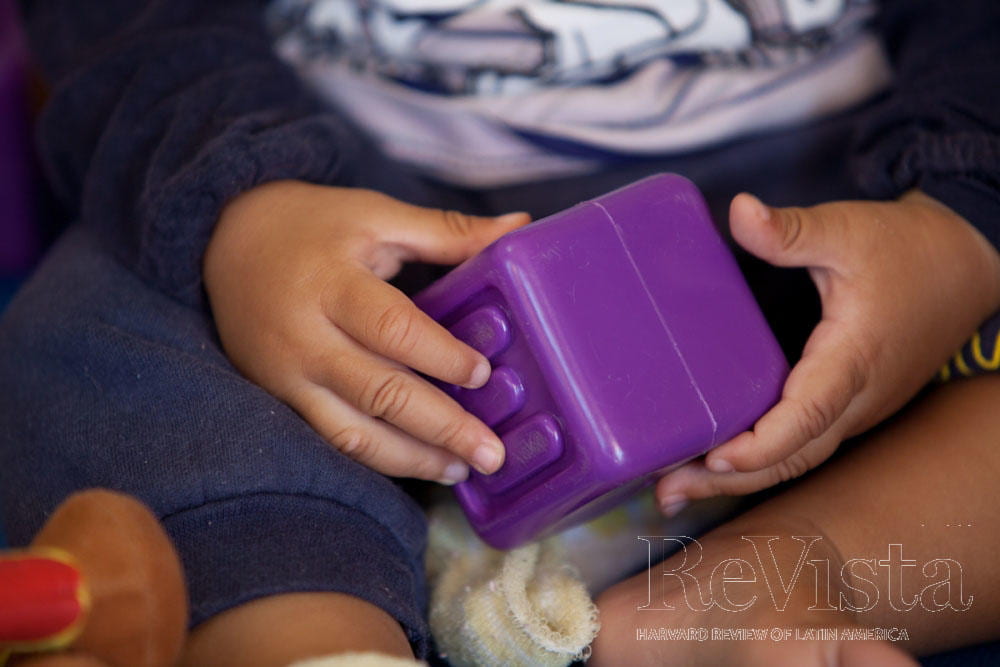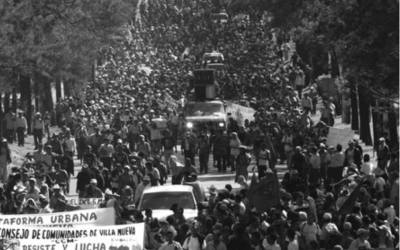Making a Difference: Building Blocks
Since the first, unplanned visit of a Brazilian entrepreneur in 2011 to Harvard’s Center on the Developing Child, a diverse group of professors, practitioners, civil society leaders and other committed individuals at Harvard and in Brazil have gathered to leverage scientific knowledge to promote better programs and policies for young children and their families in Brazil. Despite the 4,822 miles (7,761 kilometers), two languages, multiple disciplines and unique institutional pressures that separate us, the five founding partners of Núcleo Ciência pela Infância (NCPI)* have progressed considerably over the past two years.
A key component of the initiative is an Executive Leadership Program that takes advantage of rigorous existing research to help shape action plans. The four-month program starts with a week-long course at Harvard and concludes with a workshop in São Paulo. More than 90 leaders from multiple branches and levels of government, the private sector and civil society have participated. Faculty lectures, workshops, ongoing facilitation by technical panels, team meetings and conversations between professors and participants have helped shape 29 action plans to improve early childhood outcomes in Brazil. These include: the countrywide Legal Framework for Early Childhood; the early childhood programs in the municipalities of São Paulo (São Paulo Carinhosa), Arapiraca, Alagoas and in the state of Goiás; improvements to the Mãe Coruja Pernambucana program; and the scaling of the early childhood program from the state of Rio Grande do Sul (PIM) to the national level. Public sector participation in the leadership program has been strong, with 20 federal congresspeople, 14 state congresspeople, 6 representatives of Ministries, 4 state secretaries, 3 municipal secretaries and one public prosecutor having completed the course.
As the partner responsible for leading the faculty and student exchange workstream, DRCLAS created a faculty grants process in 2012 targeted at increasing the engagement of Harvard professors, advanced degree students, and their Brazilian collaborators. A faculty committee at Harvard selected four projects that include nine Harvard professors, five Brazilian professors and three post-doc/advanced degree students. Thanks to the support of the Fundação Maria Cecilia Souto Vidigal, DRCLAS awarded $100,000 in grants for work on a variety of topics: the impact of disease burden on child development in the Amazon; measuring early life adversity in the western region of metropolitan São Paulo; early cognitive development and executive function in low-income children in Salvador; and numeracy and counting among indigenous children in the Xingu Indigenous Territory in Mato Grosso. After recognizing significant overlaps and complementary aspects of their studies to assess early adversity, researchers from these teams met in Brazil and in Boston to explore ways to share expertise and increase efficiency. Calibrating measures to local settings is a necessary step to produce reliable data and catalyze future large-scale assessments.
Our Brazilian academic partners have made significant progress forming a cross-disciplinary scientific community composed of leading researchers from throughout Brazil. Their work began by mapping the current state of early childhood development research in the country. The group then synthesized knowledge from distinct disciplines as a platform for work on a first cross-disciplinary working paper that builds on the emerging consensus. This paper, written in non-technical language, aims to inform public policies. Harvard professors have been welcomed at each of the five meetings of the scientific community.
Identifying potential collaborators, stimulating active engagement and supporting growth have taken great effort; strong partnerships (and parenting) don’t lend themselves well to distance and neglect. But our efforts have been more than compensated by all that we have learned from and with our partners and above all by the growing impact of our joint initiative in Brazil and at Harvard. We know that improving child development outcomes builds stronger communities, increases economic prosperity, and results in a more just society. This is what unites us in a shared desire to keep building together towards even greater impacts.
* NCPI, www.ncpi.org.br, was founded by the Fundação Maria Cecilia Souto Vidigal (FMCSV), the University of São Paulo Medical School (FMUSP), Insper, the Center on the Developing Child at Harvard University, and the David Rockefeller Center for Latin American Studies at Harvard University.
Winter 2014, Volume XIII, Number 2
Jason Dyett is the Program Director of the DRCLAS Brazil Office.
Related Articles
Travails of a Miner, VIP-style
English + Español
Sergio Sepúlveda is a Chilean miner with an enviable salary—equivalent to that earned by a university-educated professional. He owns a brand new Korean-made car, and every three years…
Indigenous People and Resistance to Mining Projects
English + Español
Latin America’s governments and its indigenous peoples are clashing over the issue of mining. Governments, motivated by economic growth, have established legal frameworks to attract foreign investments to extract mining resources. When those resources are located in…
Urban Mining
Consider two seemingly unrelated issues: rising urban poverty and electronic waste. The Cities Alliance estimates that urban slums in developing countries are growing by…





